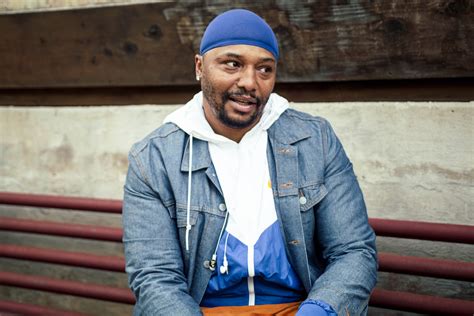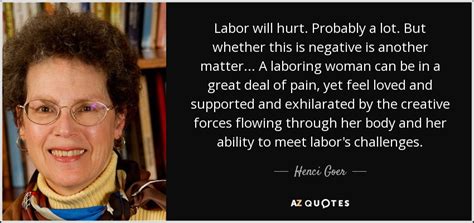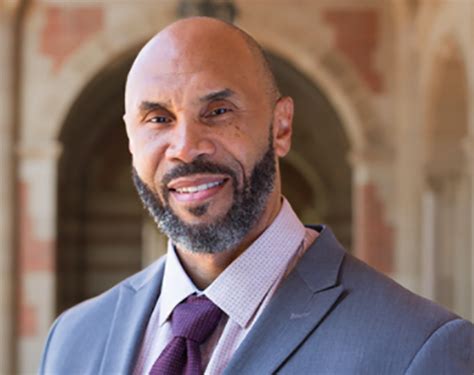Top 392 Interactions Quotes & Sayings - Page 7
Explore popular Interactions quotes.
Last updated on December 4, 2024.
You can't take a congressman to lunch for $25 and buy him a hamburger or a steak or something like that. But you can take him to a fundraising lunch and not only buy him that steak, but give him $25,000 extra and call it a fundraiser. And have all the same access and all the same interactions with that congressman.
We are social beings who make communities with an urgency, and it is a stern charge to make us take refuge in the lonely world of oneself. ...Racism attempts to occlude our cosmopolitanism (of the songs in and out of our bones), and it often appropriates our mild forms of xenophobia into its own virulent project. Difference among peoples is something that we negotiate in our everyday interactions, asking questions and being better informed of our mutual realities. To transform difference into the body is an act of bad faith, a denial of our shared nakedness.
Every person with whom you interact is a part of the person you are becoming.
Not a single interaction with a single person is left out of the process of your becoming. Many assume that only pleasing relationships have value, but that is not the case. Your awareness of an unwanted situation evokes from you a clear Vibrational request for something different. And so, even those uncomfortable interactions with others form the Vibrational basis of your expansion.
Complex organisms cannot be construed as the sum of their genes, nor do genes alone build particular items of anatomy or behavior by themselves. Most genes influence several aspects of anatomy and behavior as they operate through complex interactions with other genes and their products, and with environmental factors both within and outside the developing organism. We fall into a deep error, not just a harmful oversimplification, when we speak of genes "for" particular items of anatomy or behavior.
When we believe or say we have been offended, we usually mean we feel insulted, mistreated, snubbed, or disrespected. And certainly clumsy, embarrassing, unprincipled, and mean-spirited things do occur in our interactions with other people that would allow us to take offense. However, it ultimately is impossible for another person to offend you or to offend me. Indeed, believing that another person offended us is fundamentally false. To be offended is a choice we make; it is not a condition inflicted or imposed upon us by someone or something else.
James Comey had nine interactions with Bob Mueller after the Donald Trump's election. And in none of those, Comey testified, did he express any interest, concern, about what the Russians did, how they did it, how do we prevent it. He continuously has in fact denigrated the whole idea and dismissed that it was the Russians, and apparently hasn't yet accepted the 100-percent consensus of everybody that knows about this that this was a conscious and deliberate effort on their part to attack our democracy.
As for not getting things right: I constantly rerun social situations/conversations I experience/have throughout my head, and I'm always writing them down in notebooks or in word documents/the Internet. I feel like these habits and a generally good memory of people/the interactions I have with them (due to studying people having always been my main interest in life) have lead me to being very accurate in things I write in stories/essays.
The time-use studies also show that employed women spend as much time as nonworking women in direct interactions with their children. Employed mothers spend as much time as those at home reading to and playing with their young children, although they do not, of course, spend as much time simply in the same room or house with the children.
A hero is also someone who, in their day to day interactions with the world, despite all the pain, uncertainty and doubt that can plague us, is resiliently and unashamedly themselves. If you can wake up every day and be emotionally open and honest regardless of what you get back from the world then you can be the hero of your own story. Each and every person who can say that despite life’s various buffetings that they are proud to be the person they are is a hero.
Being a father is the hardest job on the planet, because we don't have parental instincts like women have. You have to learn how to be a father before you even become a father, from a very young age. It's necessary to override what we're told in society a father should be, like if your son falls and scrapes his knee, you got to be tough. Baseball and all that are cool, but it's the tenderness and interactions that are really important. Boys are different; we have to impart that sensibility and that tenderness to them.
My mistakes made were learning how to work with different groups of people. I mean, I went to school at Berkeley, which is a pretty diverse group, but working in a professional setting, I hadn't really done that before and learning about office politics, learning about interactions between different people and I made a lot of mistakes there during my time as a young person. I was 19 or 20 at the time. So, I would say those were my biggest career mistakes, but fortunately they were made in the context of an engineering co-op program and not in a professional field.
A study of interactions between women and obstetricians offers an explanation. It described three levels of increasing power imbalance: In the first, you fight and lose; in the second you don't fight because you know you can't win. However, in the highest level of power differential, your preferences are so manipulated that you act against your own interests, but you are content. Elective [meaning requested for no medical reason, not to be confused with needed surgery planned in advance] repeat cesarean exemplifies that highest level.
To have nice interactions with people is a better than to make anyone uncomfortable, than to try to fill up some kind of lull. Like anybody else, there's times when maybe I don't feel like talking with other people. You don't have to be in show business to not feel like making small talk sometimes. But we kind of are all in this together. It makes things easier - it just makes life easier, if we're all nice to each other. I'm sure that sounds terribly corny, but honestly, it's one of those simple things that it's so simple, it's true, and it's so true that it's simple.
Imagine how our own families, let alone the world, would change if we vowed to keep faith with one another, strengthen one another, look for and accentuate the virtues in one another, and speak graciously concerning one another. Imagine the cumulative effect if we treated each other with respect and acceptance, if we willingly provided support. Such interactions practiced on a small scale would surely have a rippling effect throughout our homes and communities and, eventually, society at large.
We need to build millions of little moments of caring on an individual level. Indeed, as talk of a politics of meaning becomes more widespread, many people will feel it easier to publicly acknowledge their own spiritual and ethical aspirations and will allow themselves to give more space to their highest vision in their personal interactions with others. A politics of meaning is as much about these millions of small acts as it is about any larger change. The two necessarily go hand in hand.
Human social life, I suggest, is the magma that erupts and builds up, so to speak, at the fault lines where natural human capacities meet and grind against and over natural human limitations…. This meeting of powers and limitations produces a creative, dynamic tension and energy that generates and fuels the making of human social life and social structures…. It is real human persons living through the tensions of natural existential contradictions who construct patterned social meanings, interactions, institutions, and structures.
Many quantum physics are realizing or hypothesizing that consciousness is not a byproduct of evolution as has been suggested. Or for that matter, an expression of our brains, although it expresses itself through our brains. But consciousness is the common ground of existence that ultimately differentiates into space, time, energy, information and matter. And the same consciousness is responsible for our thoughts, for our emotions and feelings, for our behaviors, for our personal relationships, for our social interactions, for the environments that we find ourselves in, and for our biology.
If you organize your family life to spend even ten or fifteen minutes a morning reading something that connects you with these timeless principles, its almost guaranteed that you will make better choices during the day--in the family, on the job, in every dimension of life. Your thoughts will be higher. Your interactions will be more satisfying. You will have a greater perspective. You will increase that space between what happens to you and your response to it. You will be more connected to what really matters most.
As for the ethics, law, and politics relationship, there has always been a tension for me as I try to keep them distinct while recognizing their interactions. A valuable contribution to my thinking there and elsewhere was Ellen Meiksins Wood's Mind and Politics, which reinforced for me the ways in which seemingly disparate philosophical endeavors were/are interconnected, and although I have tended to give a certain priority to ethical considerations as part of practical reasoning, I am reminded often enough that this position makes some contentious presumptions .
How do we define, how do we describe, how do we explain and/or understand ourselves? What sort of creatures do we take ourselves to be? What are we? Who are we? Why are we? How do we come to be what or who we are or take ourselves to be? How do we give an account of ourselves? How do we account for ourselves, our actions, interactions, transactions (praxis), our biologic processes? Our specific human existence?
Social media is alluring, tempting, frustrating, etc. We mistake our interactions in social media as community, but is community possible when you don't even know what someone looks like or what his or her voice sounds like? I've enjoyed connecting with a lot of poets through social media, but do I truly know them if I haven't even met them yet?
The idea of watching an entire film basically from one person's perspective - and not even really from their perspective, but [it's] probably the most intimately shot film that's in any of these categories. If you're not familiar with Son of Saul, basically it's a film about a Jewish guy who's in concentration camp, but he helps dispose of the bodies after they leave the gas chamber. So, you watch the entire movie looking at Saul's face and looking at his interactions with people.
The Hawk and the Dove is a wonderful idea for a book, wonderfully carried out. Nicholas Thompson has used illuminating new material to present each of his protagonists in a convincing, respectful, but unsparing way. Even more valuable, he has used the interactions and tensions between Paul Nitze and George Kennan to bring much of American 20th century foreign policy to life, with human richness ever present but with the big issues clear in all their complexity.
Beyond natural history Other biological sciences take up the study at other levels of organization: dissecting the individual into organs and tissues and seeing how these work together, as in physiology; reaching down still further to the level of cells, as in cytology; and reaching the final biological level with the study of living molecules and their interactions, as in biochemistry. No one of these levels can be considered as more important than any other.
If I love myself I will express that love in my interactions with you, and then I am being impeccable with the word, because that action will produce a like reaction. If I love you, then you will love me. If I insult you, you will insult me. If I have gratitude for you , you will have gratitude for me. If I'm selfish with you, you will be selfish with me.
My faith, I mean, that's such a personal aspect that a lot of times, of course it's going to come out through the song. But at the same time, I'm not a religious salesman. I feel like God doesn't really need a salesman, and what these songs are are simply my interactions with this life and learning. I guess the bottom line is the songs are really honest, you know what I mean. That faith is going to come through. If the listener is looking for it, that's definitely a part of it.
I was a big fan of a writer named Jack Vance, a science fiction writer. He always wrote about these guys who were either going down a river in a strange world or would be in this one land where people acted really strange, and he'd have these interactions with them that were strange - he'd usually get run out of town or something. Then he'd end up in the next town over where the rules were totally different. And I love this stuff.
I've spent years studying words. Linguistics, language, the power of words, the power of phrases on human beings. All of that. It's part of my, almost obsessive, fascination. It turns out that there are some keys that we all need to know about how conversations impact us, because they do at a chemical level. There are certain things that if we learned this, it would totally change our interactions with others, and that's the following. There are certain words that have a feeling of, "I love you, I care for you, you're in my tribe."
The only way the devil really exists in my opinion... is in interactions with people who don't walk the walk and talk the talk; people who act one way, or talk one way and then do another. Those are the deals with the devil. I don't see the devil as somebody who is a horned, goateed guy with a fork in his hand that's there to continuously stab me and send my soul to hell. I don't see it that way at all.
People learn a lot about what they think they know about other people from what they see in the media. If they see certain types of images reproduced over and over again for other groups that limit them to narrow types of roles and portrayals, they start to take those prejudices into their interactions with those people in real society, and that creates all kinds of discriminatory problems.
Child psychologists have demonstrated that our minds are actually constructed by these thousands of tiny interactions during the first few years of life. We aren't just what we're taught. It's what we experience during those early years - a smile here, a jarring sound there - that creates the pathways and connections of the brain. We put our kids to fifteen years of quick-cut advertising, passive television watching, and sadistic video games, and we expect to see emerge a new generation of calm, compassionate, and engaged human beings?
When you only do 10 episodes for a final season, every character and all of her interactions in every storyline have so much more import because it's the last time we're going to do it. It's been really helpful saying, "OK, where do we want each of these characters to end?" We have 10 episodes to do it and working backward from that, I kind of envy my friends who have always been on a cable network because this is really that great benefit of doing it this way.































